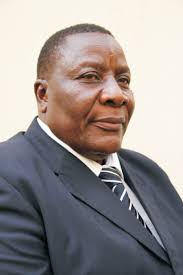By Byron Mutingwende
Parliamentarians play a crucial role in curbing corruption through creating legislation that enhances access to justice and fair distribution of resources. The Advocacy and Legal Advice Centre (ALAC), a unit of Transparency International Zimbabwe (TIZ) led by its Team Leader, Danai Mabuto engaged the Parliamentarians at a half day training workshop at Holiday Inn Hotel in Harare on what role the legislators could play in enhancing access to justice.
Mabuto bemoaned the fact that Zimbabwe has good anti-corruption policies, but little progress has been made to deter or punish corruption offenders. She said that any progress in curbing corruption must come from a broad-based coalition of actors: the three branches of government (executive, legislative, and judicial), civil society, the media, and the private sector. It also emerged that corruption has remained unabated in the government and other spheres of the economy owing to various interlocking factors. Chief amongst them has been gaps in the policy framework which are manipulated by people to their own benefit.
“The lack of accountability systems as well as lack of participation amongst citizens has also rendered institutions and Government departments to lack public accountability. Accountability constitutes the degree in which Parliamentarians have to explain or justify what they have done and failed to do. In order to reach this level of accountability, it is prudent for citizens to be informed on governance issues and their participation levels.
“Therefore if Parliament participation and engagement is weak, issues of accountability and transparency tend to fall by the wayside and thus contributing to increased levels of corruption. Given this backdrop, it is important that the intervention logic underlines or Parliament to strengthen accountability and transparency,” Mabuto said.
A documentary about one Viola Chisadza who was victimised for exposing corruption at one of the clinics in Bindura, Mashonaland Central, revealed how corruption affects social injustices and how Parliament and encouraged Parliamentarians to proffer alternatives on how to address these issues through legislative and policy implementation.
Fanny Chirisa, a Member of Parliament under the women’s quota system said that there was a need to address certain court procedures that sometimes lead to a delay in the resloution of disputes or delivery of justice.
Her worries were echoed by a fellow legislator, Mabel Nkhatazo who called for the creation of a whistleblower protection mechanism.
“ALAC is doing a great job in encouraging the public to participate in the anti-corruption drive through reporting cases of corruption in their communities. However, when the media exposes the whistleblowers, those who report may face lawsuits so we should consider enacting a whistleblowe protection Act in Parliament,” Nkhatazo said.
But Mabuto said that if one fears backlash after reporting corruption, mostly in cases of grand corruption, there is always an avenue open to reporting on anonymity but provide full details of the circumstances so as to make investigations easier.
There was the need to strengthen parliament’s role in the area of corruption and anti-corruption advocacy and monitoring as these are specialized elements in social, economic and political governance.
A case in point is when officials from the Zimbabwe Republic Police (ZRP) Traffic Section who were caught red-handed taking bribes in Hatfield were brought to the Court for trial but had their case postponed sine dine despute overwhelming evidence against them.
“Corruption by state institutions is difficult to combat. We need to change the legislative framework on taking measures to combat corruption in the police force. Currently, the law requires that the minister responsible for home affairs which is in charge of the police can not prescribe what the police Commissioner-General can do to combat corruption within the rank and file of the police. That should change,” said Member of the House of Asssembly, Washington Chikomba.
Mabuto took a dig at a practice within the police force whereby corrupt officials are transferred to other stations in the remote areas.
“This is tantamount to exporting corruption to a new jurisdiction. A transfer in my view is not a form of punishment. We encourage the dismissal of corrupt law enforcers as a deterrent measure from engaging in corruption,” Mabuto said.
Dr. James Tsabora, a Law Expert with special research interests in constitutional law, international law, environmental management aw, procurement law, international humanitarian law, international criminal law, environmental rights and natural resources governance said Parliament plays a pivotal role in ensuring access to justice for victims of corruption.
Parliament has many roles. It is the voice of the electorate; the mouthpiece of the people; the guardian of people’s interests and values; the advocate of community interests, needs and expectations; the outlet for people’s social, economic, political, environmental and cultural expectations and the measurement of national ethical standards,” Tsabora said.
He said that Parliament is critical in helping various social groups that may suffer the absence of access to justice. Without Parliamentary interventions, people are unable to have their voice heard, exercise their rights, challenge oppression, discrimination and corruption or hold decision-makers accountable.
To that end, Parliament can participate in the governance frameworks, contribute to the establishment of the institutional systems, and in the enactment of laws.
Brian Penduka, a seasoned human rights lawyer with vast experience and exposure in litigation of human rights cases at both the domestic and international courts said public interest litigation is a tool for fighting corruption and advancing socio-economic rights.






